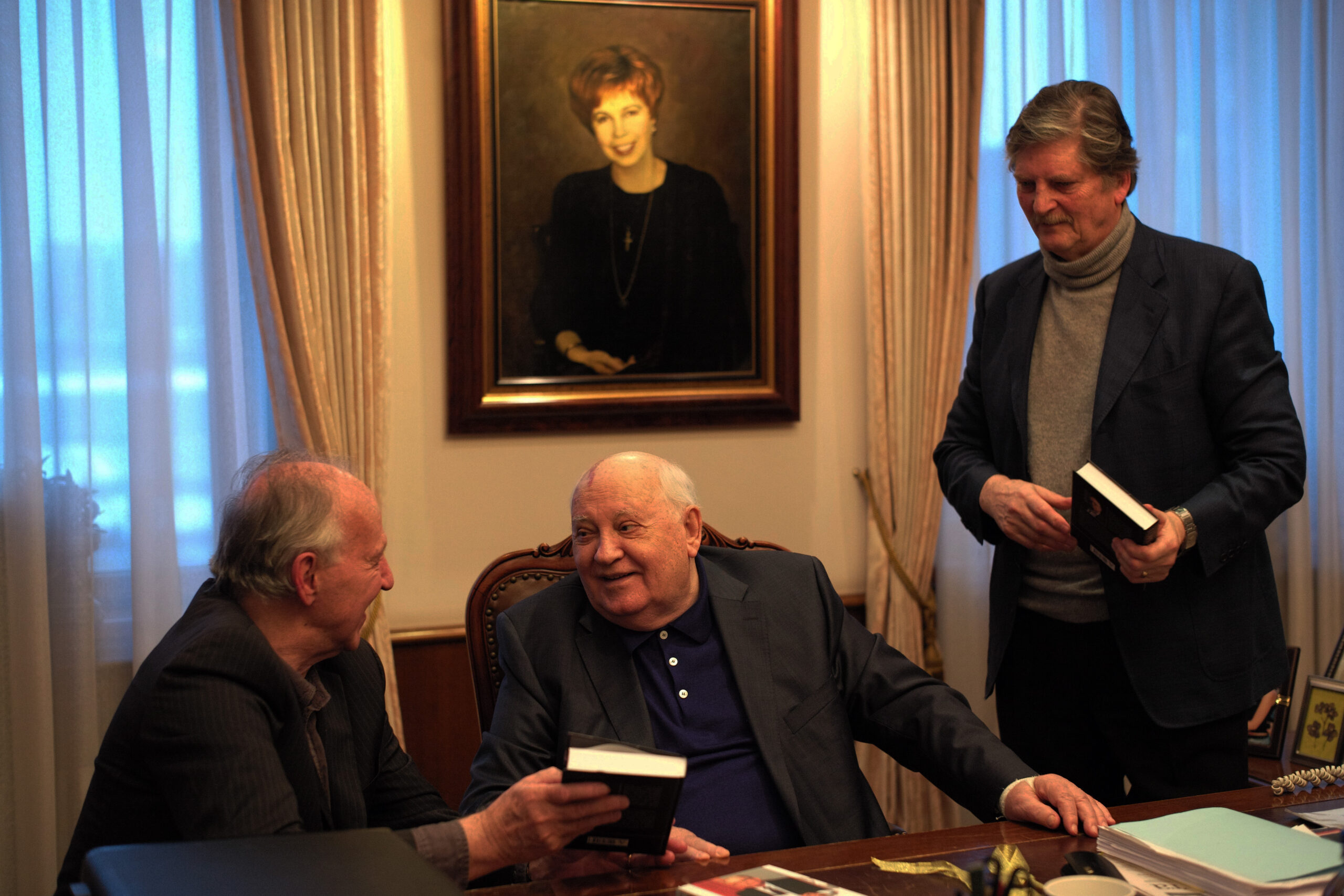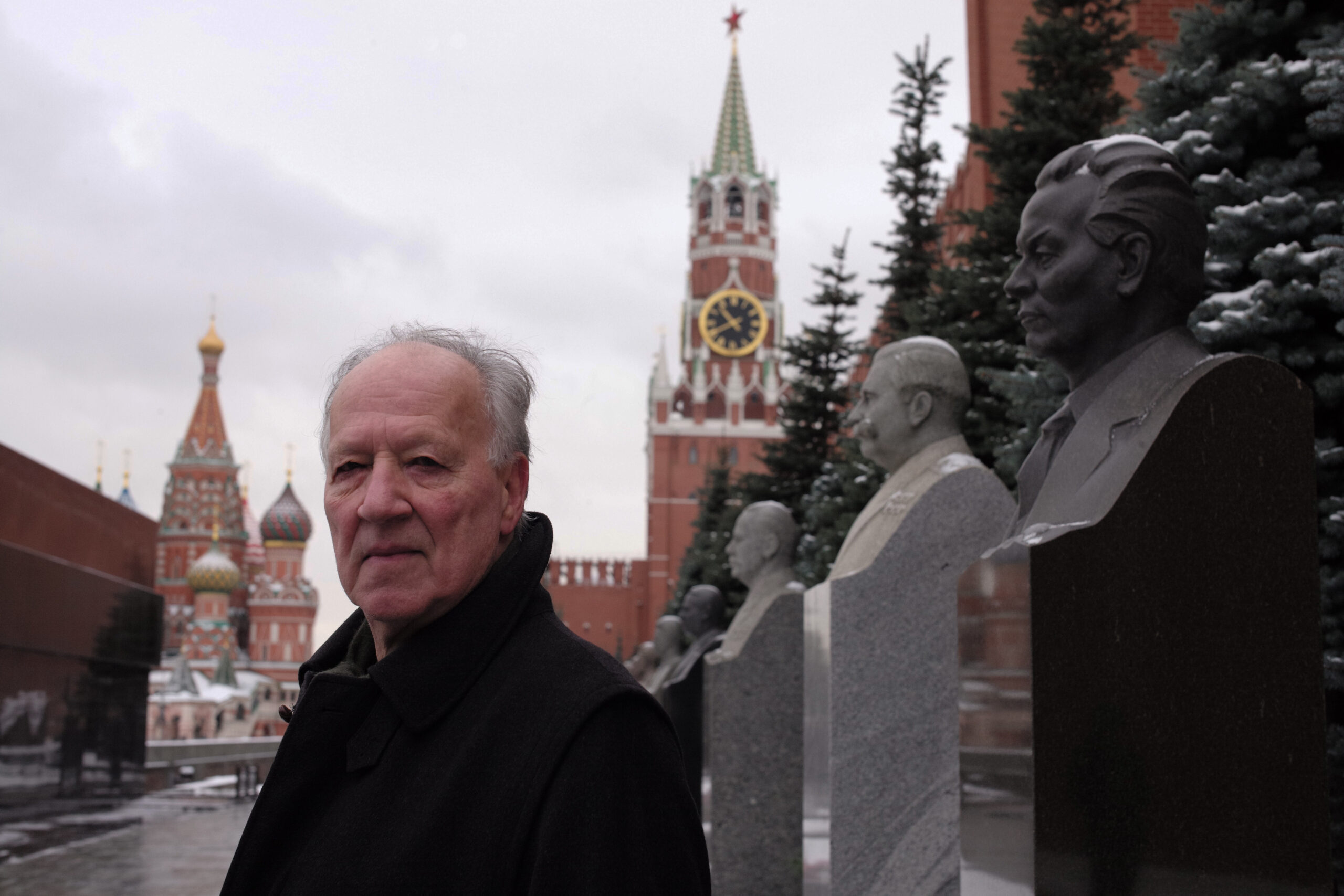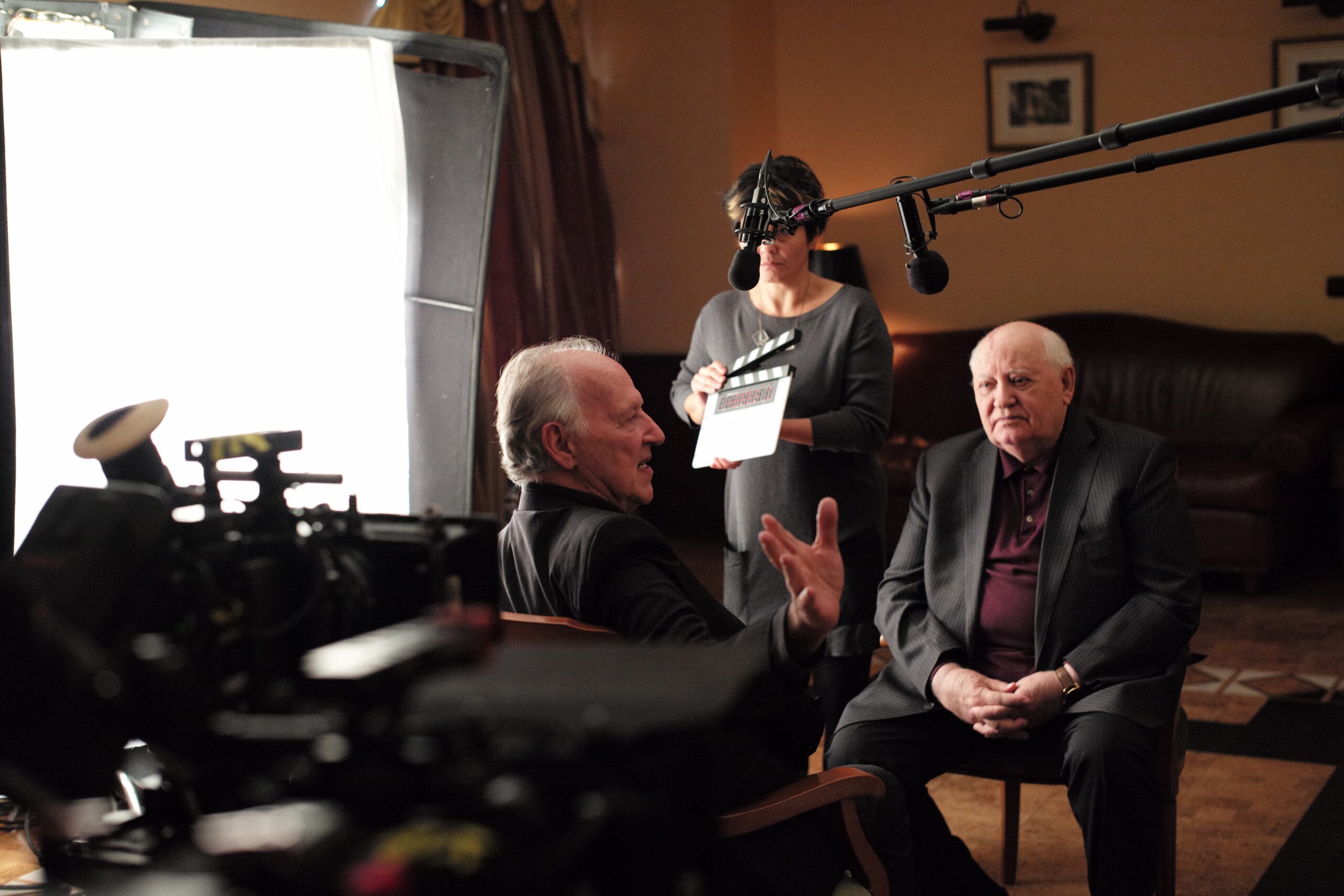Spanning nearly sixty years and about as many narrative and non-fiction features, the career of German filmmaker Werner Herzog is distinguished by a boundless, insatiable curiosity—an important trait for any artist, but especially crucial for a documentarian. His recent films include Into the Inferno, a Netflix production about active volcanoes around the world, and Lo and Behold, Reveries of the Connected World, whose title gives a sense of both the film’s technological concerns and Herzog’s ruminative, philosophical approach. In his latest feature Meeting Gorbachev, co-directed with his longtime producer André Singer, Herzog turns his attention to the eponymous world leader, Mikhail S. Gorbachev—a man who, by almost any measure, is one of the most significant political figures of the 20th century.
On paper, that’s a fascinating proposition, so it’s rather dispiriting that much of Meeting Gorbachev’s first hour is devoted to bland biographical summary of the political leader’s early life, delivered by Herzog in voiceover, and accompanied by run-of-the mill archival material. There’s not much that one couldn’t glean from a cursory Google search or Wikipedia page scan. In tracing Gorbachev’s political ascent, the film at least locates some grim humour in the successive deaths of his predecessors—Leonid Brezhnev, Yuri Andropov, and Konstantin Chernenko—all of whom died within a three-year period. (Intentionally or not, this passage, with its repeated use of Chopin’s Piano Sonata No. 2, hilariously recalls Armando Iannucci’s 2017 satire The Death of Stalin.) Once Gorbachev does take power, the film delves into the geopolitical implications of his leadership: not just glasnost and perestroika, but also the nuclear disarmament meetings at Reykjavik, and his general reputation outside the USSR, in the United States, especially.
As a history primer, then, Meeting Gorbachev is serviceable, though hardly exhaustive—which is understandable, as these topics are far better suited for book-length treatment. Herzog’s actual meetings with the former world leader, however, are a decidedly missed opportunity: the German director seems content to merely offer the 88-year-old Gorbachev anodyne questions and softball prompts. He doesn’t take any line of questioning much further than surface-level generalities. (Asked to comment on contemporary geopolitics, Gorbachev merely offers: “I just wanted to say that Cold War cannot be a form of international relations.”) There are brief mentions of contemporary leaders such as Trump and Putin, but mostly, the conversations don’t stray too far from summarizing Gorbachev’s legacy.
When one considers that the project was funded by the German public-TV outfit, MDR, this is less surprising, since Gorbachev is more popular in Germany than in his home country, mainly for his indirect role in bringing about that nation’s reunification. Of particular interest are the various conversations with former political figures such as Germany’s Horst Teltschik and Poland’s Lech Wałęsa, both of whom offer insights into Gorbachev’s appeal, as well as their personal positions on his policies.
But it’s not long before the film once again returns to its predominantly mawkish probing of the man’s life and work, and concludes with a belated mention of his late wife Raisa, who died in 1999. (Curiously, the latter is done through footage from another documentary: Vitaly Mansky’s Gorbachev: After Empire from 2001.)
What’s ultimately most startling about Meeting Gorbachev, especially for those familiar with Herzog’s often vigorous, vital work, is its utter lack of filmmaking personality. There are glimmers of promise when, during a section about the fall of the Iron Curtain, the filmmakers use a TV news spot on catching slugs to highlight how little appreciated Gorbachev’s efforts were in certain quarters. But such moments are few and far between. When asked by Herzog what he would like etched on his gravestone, Gorbachev answers with a friend’s epitaph: “We tried.” Given his considerable efforts, it’s a statement with which no one could take issue, but given the film at hand, one might be skeptical if the filmmakers said the same.
Meeting Gorbachev opens Friday at The Cinematheque and runs until May 23.











